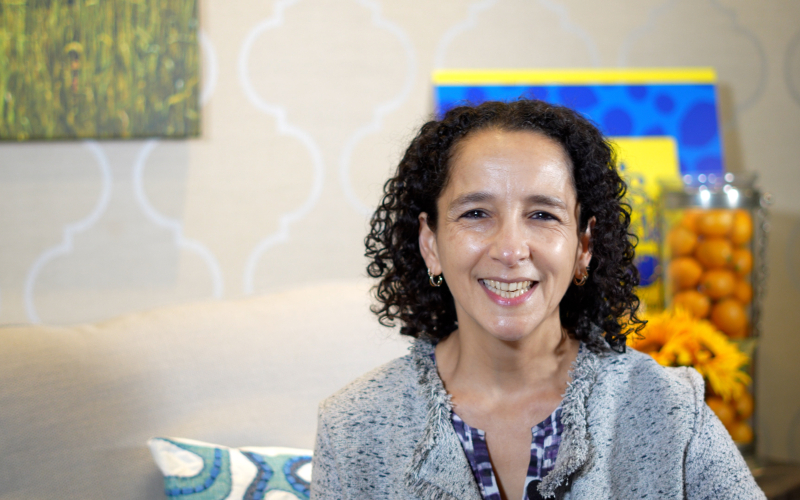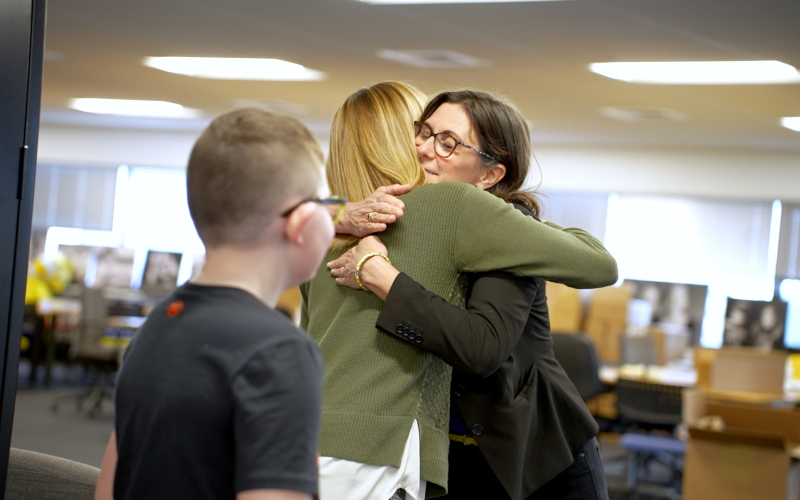By: Trish Adkins
Philip was 3 years old when doctors told his parents that his neuroblastoma was incurable.
His parents, Wendy and Jeff, were devastated. But even in devastation, they did not give up hope — hope for more time and a miracle. That hope led them to Children’s Hospital of Philadelphia and to Dr. Yael Mossé, an oncology clinician as well as a Alex’s Lemonade Stand Foundation (ALSF)-funded researcher.
Dr. Mossé has dedicated her career to researching and treating neuroblastoma. Through ALSF, she has been funded several times, leading to several critical findings for kids facing neuroblastoma.
Dr. Mossé had an open clinical trial for a targeted drug to help kids like Philip. Wendy and Jeff placed Philip on the trial — which uses a drug called lorlatinib — hoping this would be everything they were looking for.
Philip celebrated his 9th birthday in December, and he is currently cancer-free.
And as for Dr. Mossé, together with her team she published the results of the clinical trial Philip was on in Nature Medicine, a high-impact medical journal. Those results showed that the trial didn’t just work for Philip, but it worked for other children and adults with the same type of neuroblastoma.
Now, the drug will be available to newly diagnosed children as a frontline treatment, bringing it one step closer to FDA approval.
The Trial
The clinical trial is funded in part by ALSF and conducted by a group of researchers at Children’s Hospital of Philadelphia (CHOP), Winship Cancer Institute of Emory University, and the New Approaches to Neuroblastoma Therapy (NANT) consortium to test lorlatinib as a single treatment agent in children and adults in combination with chemotherapy in children. The patients enrolled on the trial all had relapsed or refractory neuroblastoma, and like Philip, had received previously unsuccessful treatment for their disease.
Lorlatinib was previously approved by the FDA for the treatment of small cell lung cancer in adults, but before Dr. Mossé’s trial, it had not been tested for use in the treatment of neuroblastoma. Lorlatinib works to inhibit the ALK mutation, which is harbored in neuroblastoma tumors of some patients, driving tumor growth and treatment resistance. Other ALK inhibitors exist, including crizotinib, but those inhibitors haven’t worked for all children with ALK neuroblastoma.
In Phase 1 of the study lorlatinib was found to be safe and tolerable to children and adults. The patients were treated in three cohorts, with varying, yet significant results. Two cohorts were treated with just lorlatinib. The cohort of children under 18 years old had a 30% response rate. The cohort of adults had a 67% response rate to the drug.
The third cohort of children were treated with a combination of lorlatinib and chemotherapy. This group had a 63% response rate.
The results were strong enough to warrant a change to the existing Phase 3 clinical trial of the drug. This change will provide for upfront treatment of ALK-positive neuroblastoma to children and adults in the Phase 3 trial, providing more critical insight into the efficacy of lorlatinib for children with ALK-driven neuroblastoma.
Cures without a cost.
For Philip, treatment on lorlatinib came with several benefits. He could take the drug in a pill format versus intravenously like his previous treatments, and the side effects were relatively manageable and mild, as compared to other traditional neuroblastoma treatments like chemotherapy and radiation. Philip was able to be a regular kid while on treatment — and now that he is off the drug, he’s able to continue growing up, playing baseball and enjoying being a third grader.
His parents are forever grateful to Dr. Mossé and the trial that gave their son hope for a future.
“Philip wouldn’t be here,” said Wendy. “This was his last shot at helping him survive.”
Full-Circle
The story of this breakthrough began with ALSF founder Alex Scott. Alex, like Philip, had neuroblastoma that wouldn’t completely respond to treatment. One experimental treatment made Alex feel better, inspiring her to hold a lemonade stand to fund treatments that would help other kids feel better too. Alex — who died when she was just 8 years old — ran out of time to find her own cure, but she left behind a legacy and a mission to cure childhood cancer.
At the time of Alex’s diagnosis, testing for mutations was not a standard practice. Years later, Alex’s parents, Liz and Jay Scott were able to test a banked sample and found out that Alex’s tumor harbored the ALK mutation, just like Philip.
It is that legacy that led to the funding Dr. Mossé received.
“Had she (Alex) been diagnosed today, she would’ve been treated completely differently than she was,” said Jay Scott, Alex’s dad.
The paper, “Lorlatinib with or without chemotherapy in ALK-driven refractory/relapsed neuroblastoma: phase I trial results," was published in Nature Medicine on April 3, 2023.



